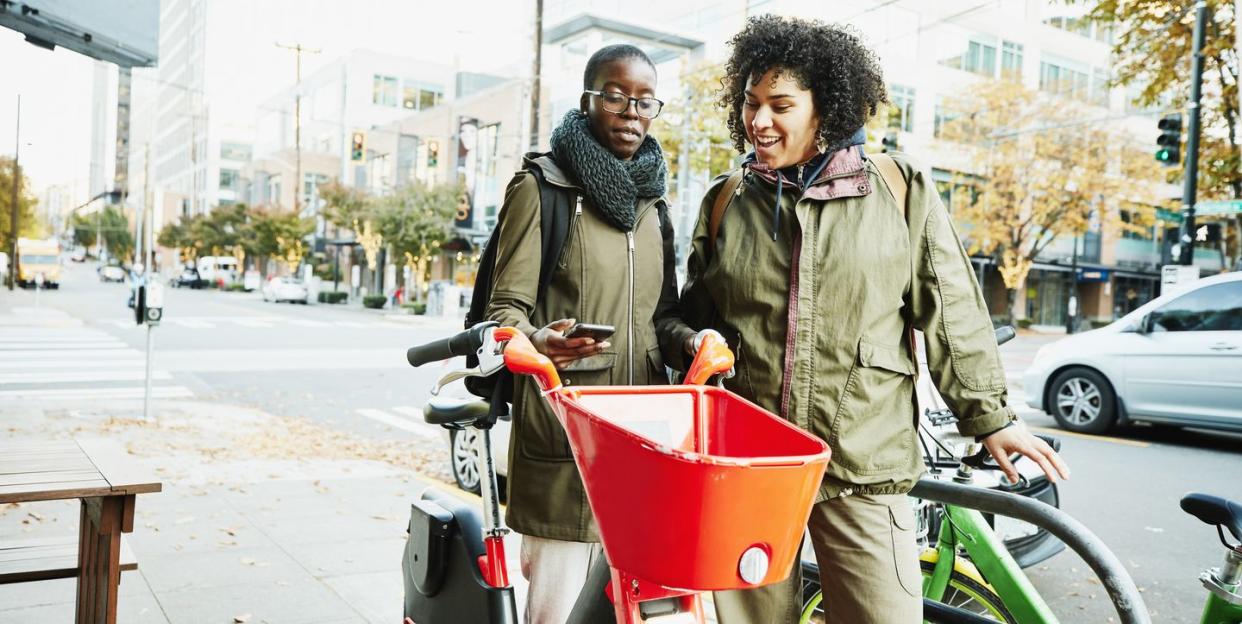Turns Out, Bike Shares Do Create New Regular Bike Riders

According to a recent report conducted across the United Kingdom, bike share programs are creating new, regular bike riders.
The study and subsequent report, which was conducted and published by the shared transportation advocacy group CoMoUK, found that 53 percent of bike-share users began cycling again after one year away from a bike. An additional 7 percent of bike-share users used the programs to bike for the first time ever. It also showed a huge spike in people who used the programs to ride a bike for the first time in over five years.
The biggest impact the study found was that 66 percent of users rode bikes more frequently after joining a bike share program. Additionally, it revealed a massive impact on the reduction of car usage, with 37 percent of bike-share users reporting that they traditionally would have made their most common bike share trip by car. And 35 percent of bike-share users reported using bike shares to commute to work at least once per week.
And while 45 percent of the study’s respondents reported owning a bike, 13 percent said they’ve purchased a conventional bike since joining a bike share program. An additional 13 percent said they’ve since purchased an e-bike.
The report also showed how bike shares contributing to cleaner air, with each user accounting for a reduction of 71 kilograms, or over 156 pounds, of carbon emissions per year.
The report examined the usage and data across all of the United Kingdom’s forty-three bike share programs.
E-Bike bike share programs experiencing huge growth
Meanwhile, the study found that usage across the nation’s twelve e-bike sharing programs exploded from 5,000 trips in the fall of 2021 to 12,000 at the same time in 2022.
Most e-bike users reported using electronically assisted bikes due to a decrease of travel time, with 48 percent of respondents claiming that a reduction in trip time as their main reason for riding an e-bike.
But 36 percent claimed that e-bikes helped them climb otherwise unclimbable hills and 30 percent claimed they allowed users to travel longer distances, helping bolster the idea that e-bikes can lower the barrier for entry to get more people on bikes.
The report wasn't entirely positive
The report wasn’t all positive, however, as it highlighted how poorly parked e-bikes and e-scooters—which often don’t have docking bays like more traditional bike shares—can negatively impact blind and partially sighted people.
It also highlighted the most popular reasons people chose to not employ bike shares, with 53 percent saying that accessibility/availability was an issue and 38 percent reporting that safety concerns and a lack of safe infrastructure prevented them from using bike shares.
CoMoUK—or Collaborative Mobility UK—is a national organization that promotes and studies a variety of shared transportation methods including bike and car shares, e-scooters, and digital demand responsive transport.
You Might Also Like
